If Shakespeare Played Halo, Hamlet and Ophelia Would Have Lived Happily Ever After
And other answers to unsolicited questions.
“Dude, have you been to an ATM lately? How come we have to keep our card stuck in the little machine reader now? I mean, what the hell good is technology if we have to keep our cards stuck in machines all the time?” — Angry Angie
Technology is supposed to make things better, not worse. So why are people going back to playing vinyl records? Some things were fine the way they were. Like my old powder blue Chevrolet station wagon with the Violent Femmes’ first album stuck in the cassette player. That car was terrific and that’s a great record and everything should have frozen in time back then. Sadly we have not created a time-freezing device. And if we did create a time-freezer it would probably rise up and steal all our Violent Femmes records. Of which the first one is the best and the one you’d miss the most.

Machines are supposed to make our lives better, but they can be such jerks. As we’ve seen in the documentary Battlestar Galactica, machines aren’t grateful to humans for building them. They are angry as hell, like whacked-out teenagers. And their plan to one day disguise themselves as beautiful women is foolproof. Humans will be completely wiped out! And the machines are getting smarter. They’re better at chess, Halo, Go, Jeopardy! and sex than humans already. If one day a machine can aimlessly lay around in its underwear all day then I, too, will be replaced!
I have a feeling the new bank ATM card readers are some kind of response to the whole “We Hate Bankers” thing going on in America now. “Oh, you hate bankers? Well we hate customers.” You ever actually ever waited in line at the bank? They don’t even have lollipops anymore! And if they do they have hidden them so they can eat them all themselves, when the customers are gone. The line at the bank is endless and insane, like some kind of Beckett play. It makes you yearn to use their insane machines. Which is just what the machines want.
As a bookstore cashier, I can tell you that this new chip technology is flat-out for the birds. It never works, you have to stick it in there for like 5 minutes. Swiping was fun! Tapping was fun! Sticking and waiting is brutal. Whenever I borrow Ben’s card to go buy myself booze at the store, they stick it in and read the chip. And then later Ben will ask me “Why is there a $30 tequila charge on my card?” Nothing is secure. Not chips, not swiping. Retina scans, possibly. Until I figure out a way to borrow Ben’s retinas while he is asleep.
Take all of your money out of the bank, roll it up like a drug dealer and put it in a refried beans can in your cupboard. This way the banks will all go broke. And your money will smell like delicious refried beans, which is a massive improvement.
When I was growing up, ATM cards were sucked straight into ATMs, for safe keeping in its ATM belly. This chomping-down on cards is definitely a step in the wrong direction. Just another reason for us to overthrow the banks, get rid of money, stop wearing clothes around and listening to Violent Femmes records all day instead of working. Now that would be a revolution.

“I fell pretty hard for this older guy this election cycle. Now they are telling me he’s not going to be president, and it makes me feel bad. I did nothing but post to facebook about this guy for a year. I blame my friends! I’m so angry! What should I do?” — Rigged System Ricky
No one ever said that voting was going to be fun. And for some reason we only really care about the election that means the least to us. Does who is president of the United States make as big a difference in your daily life as who is your mayor or city councilperson? It’s a pain to wake up every day and see someone on TV and be like “I can’t believe that person is president.” But we’ve mostly had crazy wackos become president. Like, almost exclusively.
Really, the best way to get through anything is to stop giving a fuck. If you don’t care, you won’t feel bad when things go completely sideways in the world. Believing in things, falling in love, thinking you’ve earned or deserve something: these things will always end up making you feel lousy. The things you love will betray you. The things you believe in will end up getting watered down by compromise and you’ll feel like a jerk. And no one deserves anything.
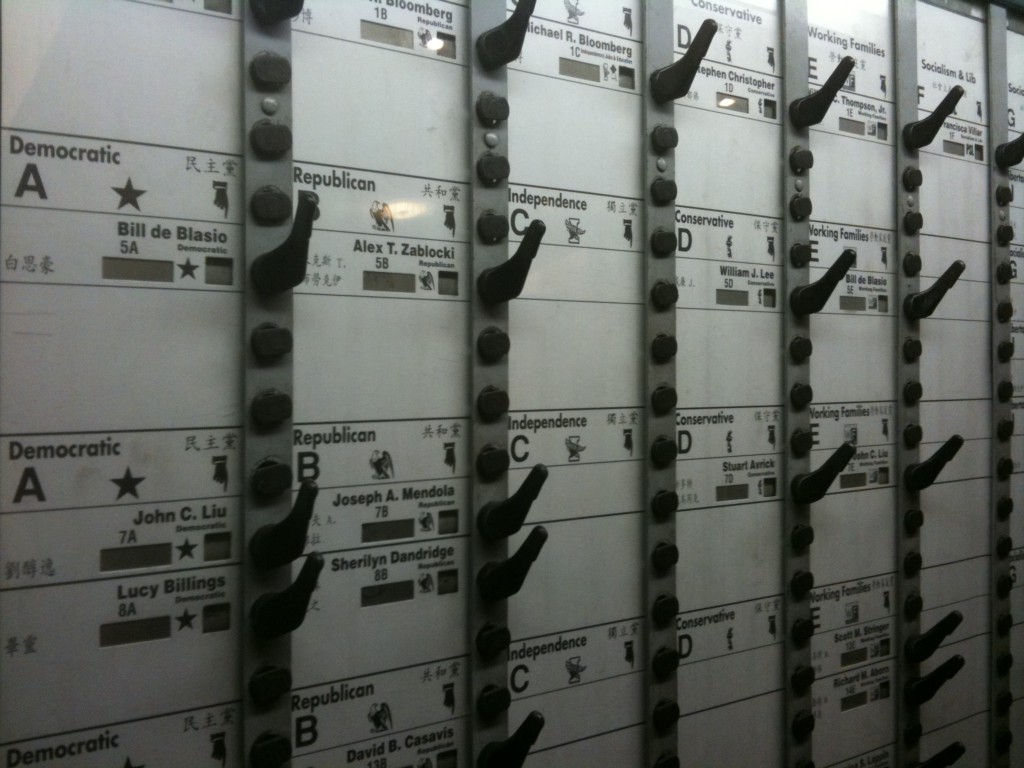
Should you blame your friends for not electing your favorite candidates? I mean, maybe. Maybe your friends are horrible voters. But, unfortunately, that’s what democracy is all about: people voting for terrible leaders. Is the system rigged? All systems are rigged. Nothing is fair and we will all die alone.
I feel worst for the people who majored in Political Science in college with the hopes of someday becoming one of those wise pundits on TV shows. That degree is even more worthless than the one I got studying sex poetry. Shrugging on TV is now the correct answer to most questions. But being angry is useful for a while. Use that energy well. Possibly you will create some great art, or some really sick burns on Twitter and Facebook. Don’t think of all that hard work you did on Facebook as a failure. If anything survives of us and our age it will be all the dumb crap on Facebook we hardly meant.
“I feel like I watch too much TV and I want to get back to reading. But all of the TV out there is so good! What can I do to feel better about the life choices I am making?” — Bookish Brett
If Jane Austen had Netflix, she never would have written anything ever. I mean, can you imagine? She’d be completely blown away to have all those episodes of “Alf” at the touch of a button. Herman Melville would have written episode recaps instead of Moby Dick. Books, like the theater and monkeys playing accordions, are on their way out. Someone will soon make a TV show about them all, which will be great. I would watch any show that had a monkey in it.
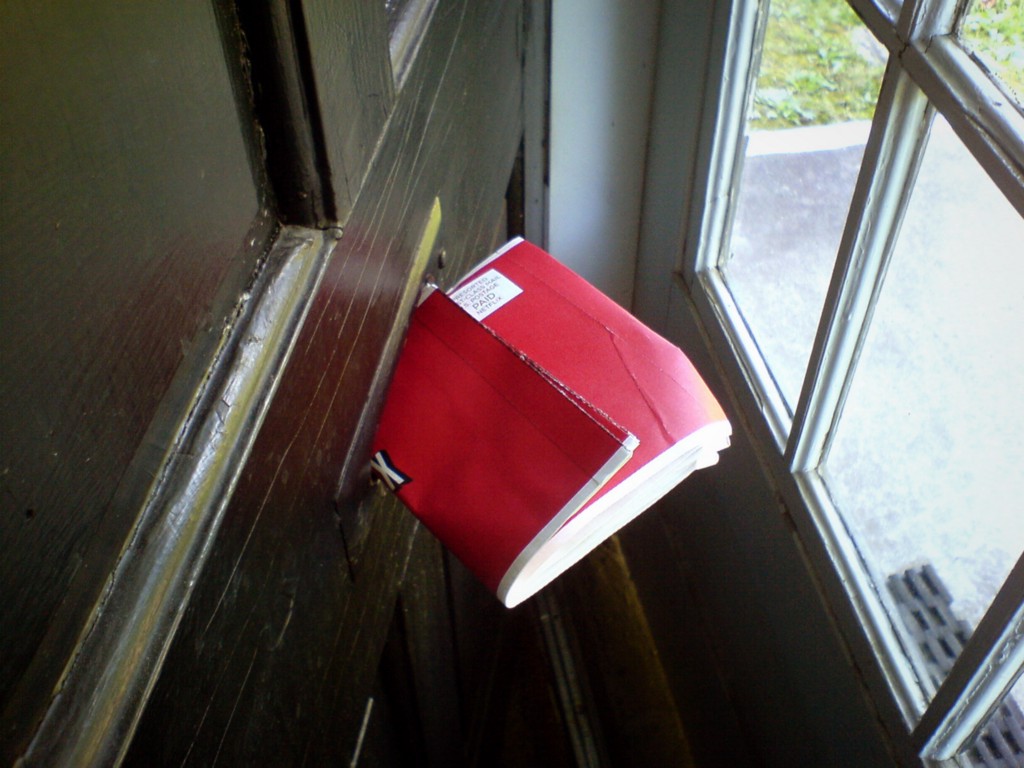
Turn the closed captions on your TV while you’re watching and read, read, read your way through the Golden Age of American Binge Streaming. Your life choices are fine. If Shakespeare had played Halo, Hamlet and Ophelia would have lived happily ever after.
Jim Behrle lives in Jersey City and works at a bookstore.
Cautionary Tales Go Down Easy
Because nobody listens and nobody learns.

“Tumblr’s stumbles under Yahoo may go down as a cautionary tale, both for the perils of a large corporation buying a hot startup and for Silicon Valley’s belief that any social network reaching hundreds of millions of people will inevitably generate boatloads of cash one day.”
— Go ahead and read Mashable’s piece about how Yahoo derailed Tumblr, but know this: There are no cautionary tales. There is laughter and there is forgetting, and that’s all there is. We do the same stupid things over and over because we are able to convince ourselves that this current scenario is somehow distinct from the previous scenario in which the stupidity was so obvious because a) we’re smarter or b) it’s a different environment now or c) something something technology. We are idiots who walk into the same open trenches where thousands of others dropped down before, sometimes while we are reading the history of previous ditch-plummets. It’s nice to think that there are lessons we learn, but learning, like love, is a lie we tell ourselves to keep from being reminded that our lives are largely lacking in significance. Anyway, there’s a great bit in the Mashable piece where a Yahoo exec tells the Tumblr kids that they could “create the next generation PDF.” You couldn’t make it up!
Soundscan Surprises, Week Ending 6/9
Back-catalog sales numbers of note from Nielsen SoundScan.
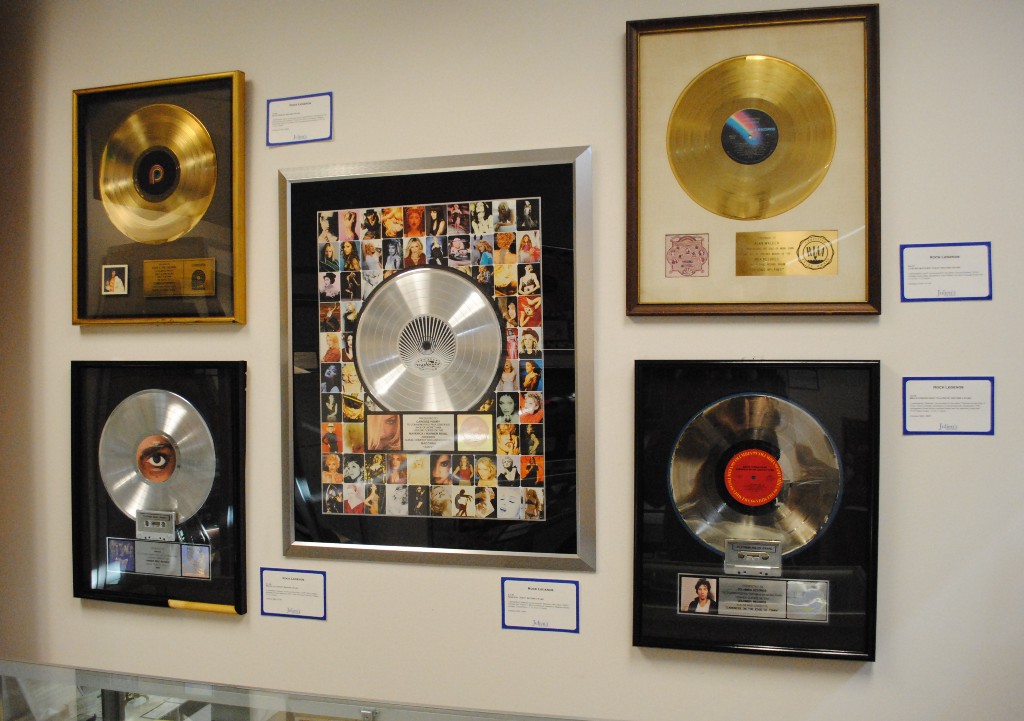
The definition of “back catalog” is: “at least 18 months old, have fallen below No. 100 on the Billboard 200 and do not have an active single on our radio.”
Okay this is exciting. A couple of cool things happened: 1) Metallica is reportedly working on a new album, set to be released this fall, and 2) The Traveling Wilburys’ catalog was digitally reissued on June 3. Rejoice and buy old records!! Finally, J. COLE WENT DOUBLE PLATINUM WITH NO FEATURES!!!!!!! Now he is a meme (technically a meme base, but whatever).
the “J. Cole Went Platinum With No Features” twospic.twitter.com/2fOwKI1leJ
11. METALLICA METALLICA 3,429 copies
15. METALLICA MASTER OF PUPPETS 3,086 copies
18. METALLICA AND JUSTICE FOR ALL 2,661 copies
20. METALLICA RIDE THE LIGHTNING 2,486 copies
23. TRAVELING WILBURYS TRAVELING WILBURYS COLLECTION 2,364 copies
26. COLE*J. 2014 FOREST HILLS DRIVE 2,198 copies
43. METALLICA KILL ’EM ALL 2,015 copies
(Previously.)
Danny Brown, "When It Rain"
At this point about the only thing I am looking forward to in the next year is the possibility of a new Danny Brown album. Let’s hope we still have a world into which he can release it. At present we’ll just have to make do with the video for his latest single. Enjoy.

New York City, June 13, 2016

★★★★ Jeans were a good idea for the school dropoff but an hour and a half later the sun was making them seem less of a good idea. The clouds could settle on nothing: the sky cycled in and out of high cirrus, empty blue, full gray, and then mess of crossing bright contrails in the lowering light. The sun passed behind rippling rows of clouds where they closed together in the west and went out of sight. It seemed, for a long while, as if that would be that. Only far off in the north under the darkening dull clouds was a narrow opening, where greens and pinks and golds concentrated, faded with distance. The daylight was all but gone when suddenly violent, brilliant magenta spilled up the nearer clouds, catching every undulation in their surface, scrawling shocking unreadable glyphs across the evening, to stop and stare and marvel at.
You'd Have to be Crazy (Part II)
Homelessness in America
This is the second in a five-part series about homelessness, mental health, and addiction. (Here’s Part I.)
The Way We Write Ourselves Into Things Now
If I don’t mention myself will you drift away?
“Just slip some first-person in there. Doesn’t really matter what, where or why.” -apparently every @nytimes editorpic.twitter.com/o0o2yybYGw
As someone who has gone on record as noting that his least favorite thing about journalism is when the writer has to remind you he’s telling you the story you can probably guess where my opinion falls concerning the increasing encroachment of “I” on news pages, but what do I know? The Times employs lots of people who are there specifically to make sure you stick around long enough that they can tell their advertisers you looked at the products of their in-house content studio; it may very well be the case that the paper’s attention experts have research showing people have become so stupid in our era that the only way you can keep them engaged with a story is by occasionally reminding them there’s someone — someone just like them — who was present at the thing they are reading about.
Is that some crazy conspiracy theory? Sure, it sounds outlandish, but think about just how stupid people — ostensibly literate people! — have in fact become in our era and it makes a lot more sense, particularly when you consider that any decent editor of the last fifty years would have been sure to strike it out as extraneous and distracting and gross. It sucks, but I expect we’re going to see a lot more of it. It reminds me of a story about me I want to tell you.
Making Contact
A Look At The World’s Biggest UFO Convention

Thousands swarmed the high desert like locusts, clad in Birkenstocks and bandanas, cut-offs and tank tops. Their skin burnt cherry red, they poured out of trucks and Toyotas, sweating under the oppressive hundred and six-degree heat, scuttling through sand and rock, not in search of a shady refuge or a sip of water — but to find salvation.
Aging boomers, bearded Mad Max types, hippies, burners, little old ladies and medical doctors, ravers — they all shared a common vision. They’ve had an experience that would cause you or I to laugh, maybe label them crazy. But no one’s crazy at Contact In The Desert, the Woodstock of UFO conferences. If anything, people like you and me, the non-believers, we’re the weirdos.

They may have looked intimidating, but people there were friendly. Lost in a never-ending desert of a parking lot, a round, smiling woman driving a golf cart offered me and my girlfriend a ride. We hopped on and our savior gushed about seeing a UFO the night before.
“Y’know, this is Chumash Indian burial ground,” she said, handing us necklaces with silver starship pendants before dropping us in front of the Joshua Tree Retreat Center, an archipelago of chapels and sepulchres. It looked like an occult farmer’s market. Vendors pushed t-shirts, crystals, pizza. It was a music festival without the music, a crypto-Coachella where you couldn’t step two feet without eavesdropping on someone reliving their visitation. And everyone was dead serious.

More than four thousand people came, some from as far as Australia and Finland, all willing to pay hundreds for the four-day event in the dunes. Some camped on-site, others stayed in normally empty motels, sold out since January. And it wasn’t cheap; everything from workshops to special events within the event (like night-vision stargazing and what to do if you’re contacted), were all add-ons, ranging as much as $49.99 a pop.

“The first time I was abducted, I was twenty-one years-old,” said a fifty-something in a visor and sunglasses, as casually as she’d explain the recipe for meatloaf. Her companion nodded, his gray ponytail swinging — he’d look at home on the back of a Harley, or with a Bud Light and a bug zapper. “That’s when they come,” he responded wistfully. “I know it.”
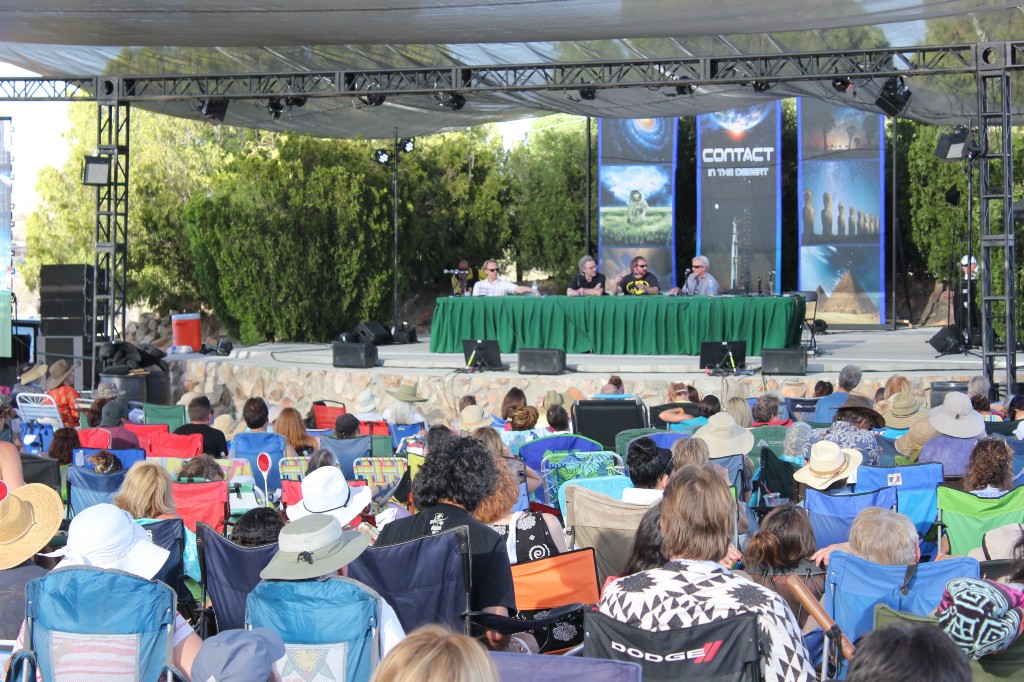
Whatever your conspiracy, it’s served there. Some of it even had a slice (paper-thin) of science. The links between psychedelic drugs, consciousness, the invention of language, art, and human evolution, simulation theory, genealogy, the potential of CRISPR genome editing — were all explored with an alien twist. Most often, it was the “ancient” variety made popular on the History Channel show, “Ancient Aliens.” Groupies queued for a glimpse of the stars of the show, Erich von Däniken, Giorgio Tsoukalos, writers like Whitley Strieber, who penned the Communion series, and AM radio host George Noory, extraterrestrial high priests come to preach and hawk their wares.
Von Däniken, the godfather of it all, was once a hotel manager in his native Switzerland; perhaps his hospitality bent made him such a good salesman. In 1968, he published Chariots Of The Gods, the spark for the ancient alien hypothesis that many have since made their meal ticket. Now well into his eighties, and still very much the movement’s patron saint, von Däniken boomed into the microphone on stage. Sweating and swaying, proselytizing from the pyramids of Egypt and Mexico to the Nazca lines, and back, he laughed at “the free press” for silencing his truth.

“The public should not doubt that we should doubt,” von Däniken preached in thick Bavarian English as the audience applauded. “We’re unreasonable. Every newspaper, every television station, it belongs to someone. These organizations always want to be serious. That’s why this society needs people like you — just be a little unreasonable.”
It felt like a revival. If the guy next to me had begun to roll on the floor, speaking in tongues, I wouldn’t have been surprised. Anything seemed possible. But in two days there, I didn’t have a single extraordinary encounter, at least not with otherworldly beings.
I came close in speaking with a Brit named Nick Redfern, an author of forty works who moonlights as a strip club reviewer, “which does have its perks,” he confessed. He wore a hypnotic skull bandanna on his head, an Affliction tee, as he detailed FBI plots to silence the contacted. It was strange that a guy so convinced never had an experience himself, beyond his father’s sighting during a stint in the British Royal Air Force.
Still, I couldn’t help leaning forward when Graham Hancock discussed the powers of DMT and psilocybin mushrooms as catalysts for ancient man’s creative spark — maybe psychedelics did have a hand in evolution, certainly based on ethnography, it did play a role in cave art, geoglyphs and history in classical Greece, Europe and the Americas, right? But language wasn’t born from all that, and I bristled at the concept of extraterrestrials as knowledge bearers. Sure, there’s no way to know, but the “all roads lead to the sky” philosophy…?
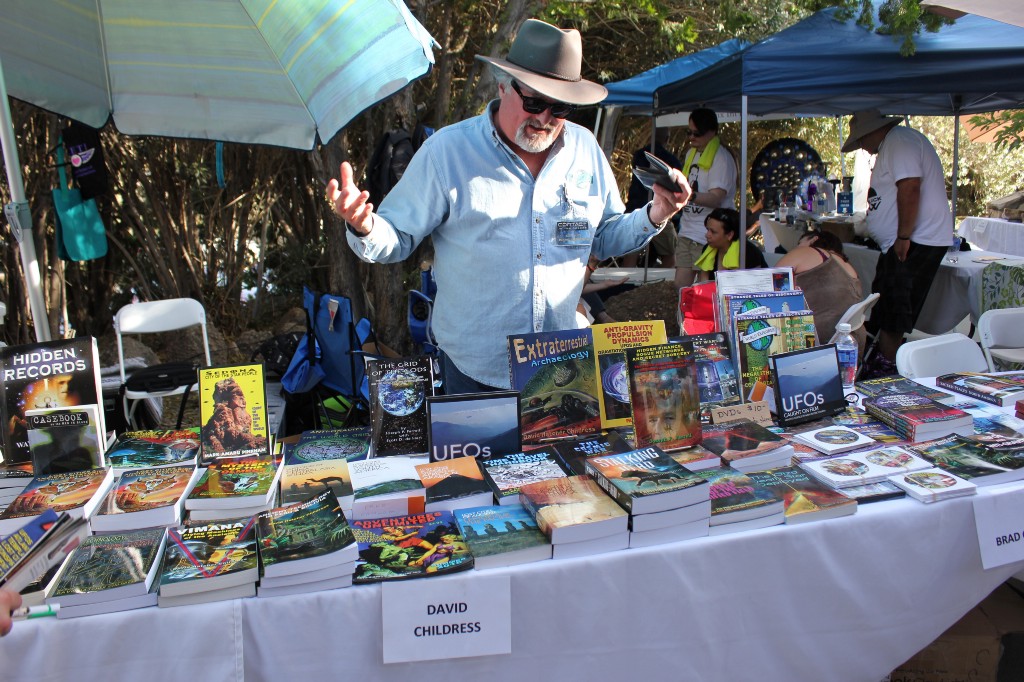
When David Childress dished on the link between Hitler and Hannibal based on their facial hair, I couldn’t tell if he was being serious or fucking with me. Neither would have been surprising.

If von Däniken is the godfather of this gang, Giorgio Tsoukalos is his rockstar heir. Sporting a fake tan and possibly fake hair, (the follicles brazenly defy gravity), he looks the part. “What we’re doing is carrying the message to the masses,” he said to a round of cheers. “This time, we will not be stopped.” He was dressed head-to-toe in flowing linen, like Indiana Jones just back from a dig, and he had a glint in his eye as he spoke (whether that’s from all the adoration or other substances was hard to say).
“People ask me how come you don’t show any skeptics on the show? They’ve pissed in our pot for years, we’re not letting them take part!”
“He’s so real,” someone in the crowd said as women with short gray hair giggled and snapped photos.
Even among these circles, Tsoukalos has a diva-ish reputation. The purported publisher of Legendary Times magazine — I’ve searched high and low for a copy, but it’s easier to be abducted then find an issue — after years of banging the alien drum, he only recently had a sighting.
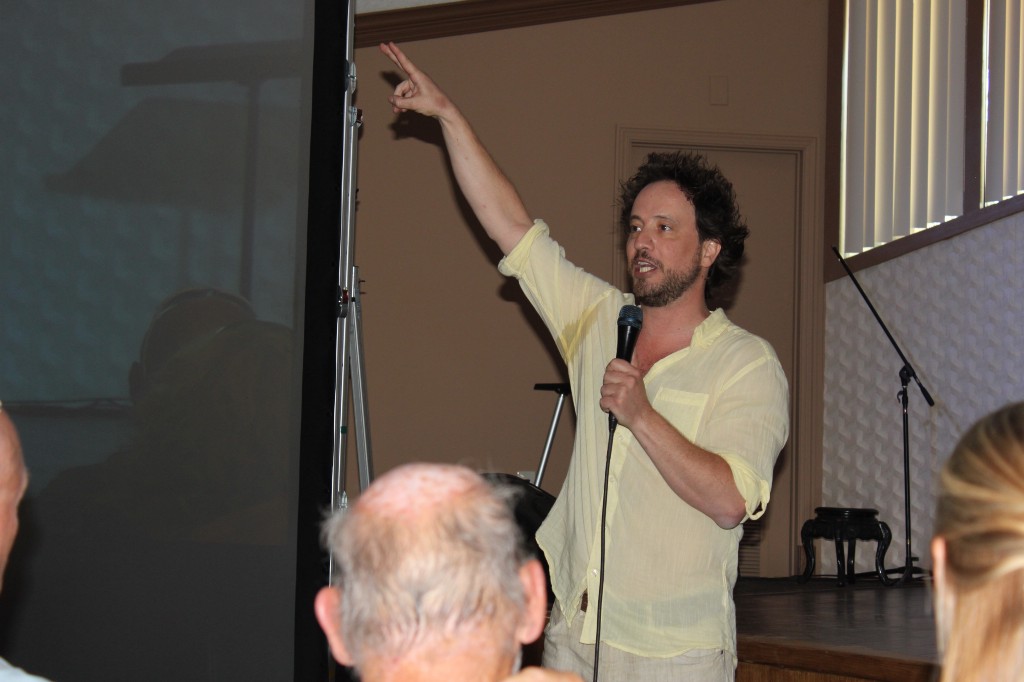
At the same event last year, Tsoukalos saw a UFO for the first time. When he shared the experience, he acknowledged the implicit cliche of it all, then called for the “twenty-eight people” in the crowd who were there to corroborate his story. No hands went up. Fumbling for credibility, he scanned the audience. Finally someone in the back yelled out it was true.
Why didn’t you say anything sooner, Tsoukalos hit back with comedic timing, to which the audience erupted. “It was too early for us all to be inebriated,” he continues. “Sober people saw it, too.”
A fan asked what the aliens looked like. “If the hatch opens, we’ll be looking at ourselves,” says Tsoukalos, whose surname means “night pot” in my paternal Romanian. “If we are the offspring of the aliens, they look like us, because we look like them.”
The crowd roared again, and Tsoukalos smiled ear-to-ear. Like a master huckster straight out of Twain, he wove into an audience Q&A on everything from his own short-lived spinoff series, to esoteric Siberian sightings, hybrid space beings, often without answering the question or even keeping a consistent train of thought. It didn’t seem to matter what he was pushing because the people came to buy. Following von Däniken’s lead, and possibly smelling this doubter only a few yards away, Tsoukalos wailed that the press went out of its way to suppress the truth, even when faced with it.
“Journalists wouldn’t believe they were seeing an alien even if they were standing in front of one — unless you’re ready for this, even if you have an alien in front of you, you won’t believe,” he said. Here stood the true extraterrestrial, powerful enough to deploy an army of sycophants ready to follow orders. And yet, as he wailed and jived, I still couldn’t tell if this man himself believed. Was he simply drunk off of his own manna, or did he think he was a vessel for a higher power?
I turned to my girlfriend. It was clear to her; I didn’t even have to ask. “He’s been out in the sun too long,” she whispered.
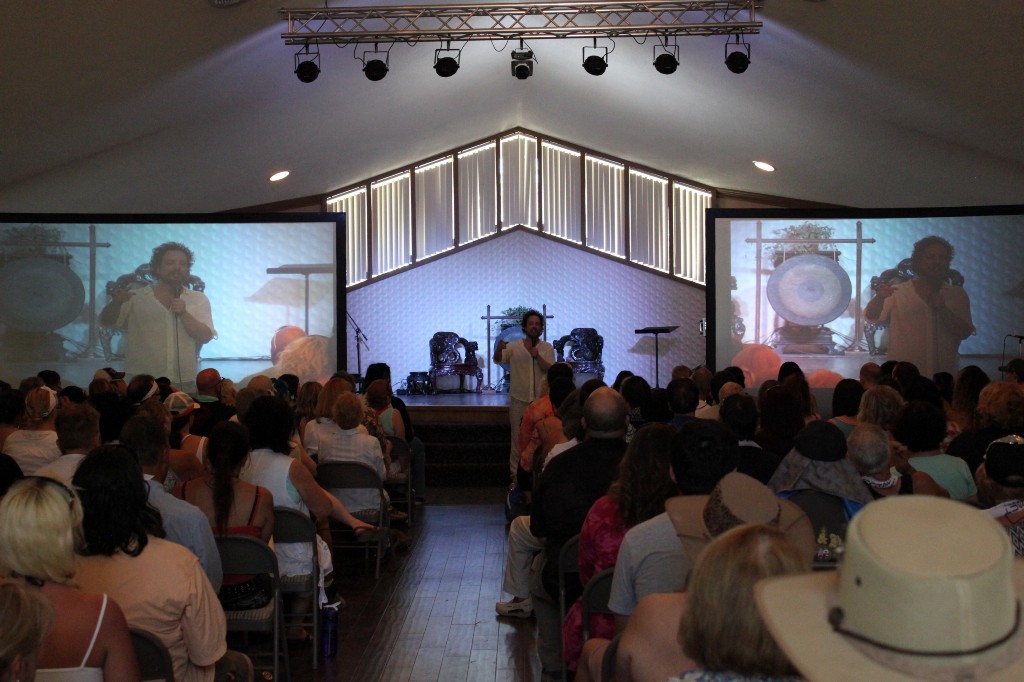
We got up and no one leapt to stop us, no one seemed to notice — all eyes were locked forward, mouths agape, iPhones snapping away. As we crept down the aisle and headed for the door, I expected the preacher to yell “There are non-believers among us. SEIZE THEM!” But he didn’t say a thing. He couldn’t see us. I’m not sure he could see anything. If the truth is out there, that’s where it’ll stay, buried, deep in the desert, or high in the sky, one and the same.
The Shape of the Year
School is for childhood but summer holidays are forever.

Aristotle said that time is “a number of change with respect to the before and after.” I learned that in February, early on in the 2011 Spring semester. We were in “Time and Temporality in Medieval Literature” to learn about the clock shifting, warping, and disappearing. The classroom was always overheated. Every Thursday evening, the cold would be a surprise as we put down Aristotle, took the elevator down, and plunged into the black Cooper Square night like aristocrats falling off the Titanic.
I can’t look you in the eye and tell you exactly what Aristotle meant, because a lot of philosophy professors make their living wrestling that very question. But let’s start by agreeing that the past and future are way easier to conceive of than the present. As soon as you think about now, it is gone. It just slips away. But your brain can count instants, can watch events pass from future, through present, into past.
For most of us, the academic calendar comes to determine our experience of the year. We just have to do it for so long (although I don’t know how it feels to be home-schooled, of course). The year pulses through semesters until we leave school, then some of us return to a different type of school, then a lot of us have kids who go to school. At some age — I don’t know what — the school year gets stuck in our brains. We internalize “progress” as moving from one grade to another each fall, hauling ourselves up the great awful climbing wall of standardized testing and examinations. We escape into summer, take refuge in winter break. In answer to the question, how do I feel?, the mind first asks: well, what month is it?
That’s why 9 a.m. has the same feeling as September, decades after you’ve been done with homework. It’s the feeling of a beginning: good morning, get to class, sharpen pencil, new shoes, pick up the backpack. April and May are rising spring panic and buying flowers to block out the exams on the horizon. October is for waking every day into a dying fall, kicking leaves alone at the bus stop. August is a blackout, like the days between Christmas and New Year’s Eve.

The things I remember learning at particular times of year retain the flavor of their season. Algebra is the smell of blue ink and the bare branch scraping on the maths classroom window (thinking about Cathy in Wuthering Heights). The sound of a minor third played on the piano is snow. Cut grass feels like pounding and pounding the ground at cross-country, although my body can’t do that any more. Aristotle tastes like black ice New York air.
But right now it’s June, and the year is just done. Do you remember that part in The Lion, the Witch, and the Wardrobe, where C.S. Lewis describes how Aslan’s name make each of the children feel? Peter, the patriarchal big brother, “felt suddenly brave and adventurous.” Boring Susan “felt as if some delicious smell or some delightful strain of music had just floated by her.” But Lucy, the littlest and cleverest child, got the feeling that we all have now: “Lucy got the feeling you have when you wake up in the morning and realize that it is the beginning of the holidays or the beginning of Summer.”
This is the first summer of my life that isn’t beginning with a joyful and frantic sprint out of an examination room and into freedom. But I’ll always dream in June about GCSEs, the “General Certificate of Secondary Education” exams British kids take at around 16. I’ll dream about the morning I overslept and arrived an hour late for the English exam. I’ll dream about the spliff I smoked in the park with that girl with red hair after the final test. I’ll dream about the nosebleed I got, the answer booklet I stained. I dream this even though there is no freedom on the other side, because nobody is withholding my freedom to start with.
June is stasis, June is joy, June is in-between days. Heavy roses bending their stems. Foliage thickening and thickening in the streets. I feel June at 10 p.m. on a hot night, cigarette smoke on the bare-thigh air, for all the world as if I’m still in my school uniform. Take a minute to remember what summer meant, once! That hot freedom is still inside you, deep down. I hope you can remember that your liberty is yours and that June is waiting for you to run into it. After all, soon you’ll be sharpening pencils again, and breaking in a new pair of shoes.
Josephine Livingstone is a writer and academic in New York.
How Things Work, Maybe
Thoughts on stories about narratives.
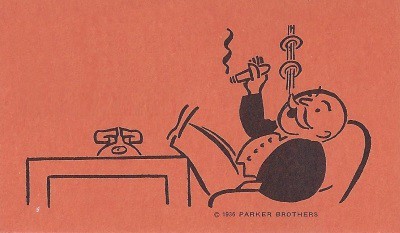
“Silicon Valley’s elite seem especially to be clinging to their narrative for dear life. I think there’s a simple reason for this: tech — and tech investing in particular — is a business that is ostensibly about predicting the future, but in actuality relies far more on blind luck and connections than most would like to admit.”
— Despite its using the Joan Didion quote that I thought we made clear was under moratorium for the foreseeable future, you might find some thoughts of interest in the piece below about Gawker and Peter Thiel and Silicon Valley, if in fact you can bring yourself to read another piece about Gawker, Peter Thiel, Silicon Valley or any combination thereof. I totally get it if you can’t, I’m not very far from that place myself.
